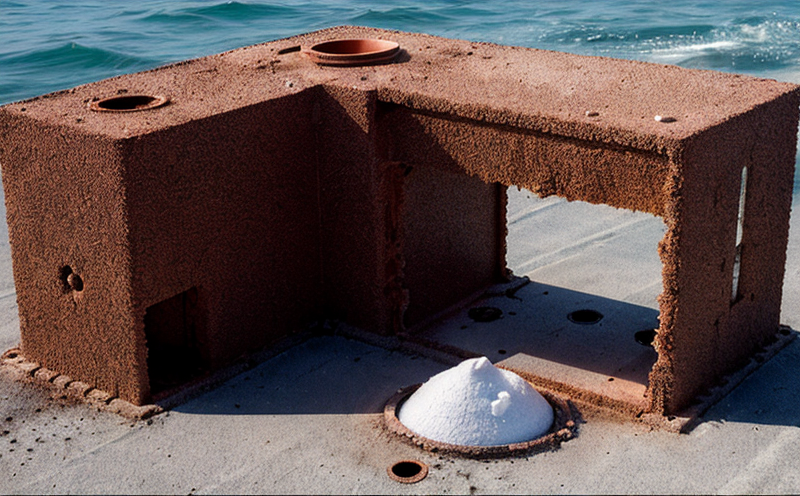Testing for Thermal Shock-Induced Degradation in Marine Materials
Unlocking the Secrets of Marine Materials Understanding Thermal Shock-Induced Degradation with Eurolabs Expertise
In the world of marine engineering and materials science, ensuring the reliability and durability of equipment and components is crucial for safe and efficient operations. However, harsh marine environments can be unforgiving, exposing materials to extreme temperatures, corrosive substances, and other forms of degradation that can compromise their performance and longevity.
One critical aspect of material evaluation in this context is testing for thermal shock-induced degradation, a phenomenon where rapid temperature changes cause significant stress on the materials molecular structure. This can lead to premature failure, damage, or even catastrophic collapse of critical components.
In this article, we will delve into the importance of Testing for Thermal Shock-Induced Degradation in Marine Materials and explore how Eurolabs laboratory services can provide businesses with the knowledge they need to make informed decisions about their equipment and materials.
The Importance of Testing for Thermal Shock-Induced Degradation
Testing for thermal shock-induced degradation is essential for several reasons
Ensures Equipment Reliability By evaluating the performance of materials under extreme temperature fluctuations, businesses can identify potential weaknesses and prevent costly downtime or accidents.
Extends Component Lifespan Understanding how materials degrade under thermal shock conditions allows manufacturers to develop more robust designs and select materials better suited for marine environments.
Meets Regulatory Compliance In many industries, regulatory bodies require testing and documentation of material performance in extreme conditions. Our services help businesses meet these requirements.
Advantages of Testing with Eurolab
Our laboratory service offers numerous benefits to businesses looking to evaluate the thermal shock resistance of their materials
Accurate Results Our expert technicians utilize state-of-the-art equipment to provide precise and reliable test results.
Comprehensive Analysis We offer a detailed breakdown of test data, including graphs, charts, and written reports for easy interpretation.
Customized Solutions Our team works with clients to develop tailored testing protocols that meet specific needs and requirements.
Key Benefits of Testing for Thermal Shock-Induced Degradation
Our laboratory services provide the following key benefits
Improved Material Selection By understanding how materials perform under thermal shock conditions, businesses can choose the most suitable options for their applications.
Enhanced Design Optimization Our test results enable manufacturers to optimize component designs and reduce the risk of material failure.
Reduced Maintenance Costs Identifying potential weaknesses early on helps minimize maintenance expenses and reduces downtime.
QA Frequently Asked Questions About Thermal Shock-Induced Degradation Testing
Weve compiled a list of frequently asked questions to help you better understand our laboratory services
What types of materials can be tested for thermal shock-induced degradation?
Metals, polymers, ceramics, and other common marine materials.
How are tests conducted, and what equipment is used?
Our expert technicians utilize a range of specialized equipment, including thermoregulated baths, cryogenic chambers, and high-temperature ovens.
What kind of data can I expect from the test results?
Detailed reports, graphs, and charts providing precise information about material performance under thermal shock conditions.
At Eurolab, we are committed to helping businesses navigate the complexities of marine materials science. Our laboratory services provide essential insights into the behavior of materials under extreme temperature fluctuations, empowering clients to make informed decisions about their equipment and components.
By understanding the risks associated with thermal shock-induced degradation, manufacturers can create more reliable, efficient, and safe products that withstand the harsh conditions of marine environments.




